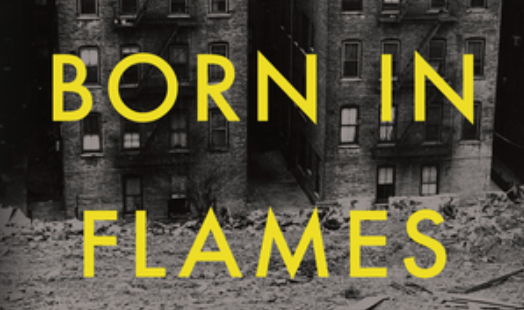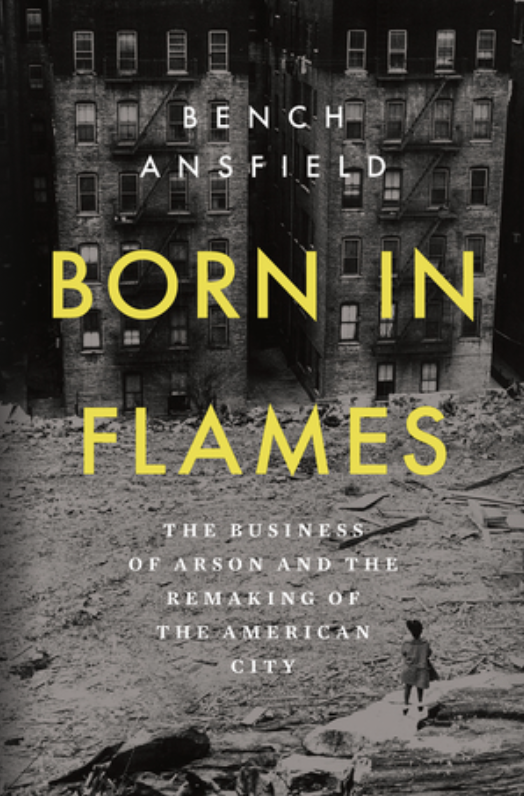author's pitch: arson and the carceral history of property insurance
"We need to expand our understanding of state revanchism to include not only investments in security, but also in securitization. The rise of finance complemented and shored up mass incarceration"

Today I am pleased to share an author's pitch from Bench Ansfield, assistant professor of history at my alma mater, Temple University.
Property insurance is not a subject that comes up often in histories of the carceral state. But the history of the U.S. city as told through the humble insurance policy touches many themes of deep importance to the field: the racialization of risk, the uprisings of the 1960s and the state's draconian response, finance as an arena of counterinsurgency, and the origins of broken windows policing – all of these feature prominently in Born in Flames: The Business of Arson and the Remaking of the American City (W. W. Norton).
The book chronicles the wave of landlord arson that blazed across U.S. cities in the 1970s, from the Bronx to L.A. Though commonly confused with the uprisings of the 1960s, these fires were lit not for protest, but for profit, most of which flowed into the aptly named FIRE industries — finance, insurance, and real estate. The book offers a view of financialization from the ground up: how it was felt, contested, and transfigured by those far from the fray of Wall Street.
At the center of the project is the FAIR plan, a state-subsidized fire insurance program introduced by an offshoot of the Kerner Commission in 1968. Although the FAIR plan was ostensibly created as a tool for ending insurance redlining and quelling the rebellions of the 1960s, it inadvertently incentivized landlords to set their buildings on fire. The strange career of the FAIR plan illustrates that the state's offensive against the liberation movements of the 1960s did not only take the form of policing and prisons. Counterinsurgency could also assume a financial form. Our field has done crucial work tracing how the social, political, and economic crises of the late twentieth century catalyzed the move toward law-and-order politics. This book argues that we need to expand our understanding of state revanchism to include not only investments in security, but also in securitization. The rise of finance complemented and shored up mass incarceration. Building on the foundational work of Ruth Wilson Gilmore, Jackie Wang, and others, we must continue to chart how financialization and the punitive turn have been mutually reinforcing. The insurance industry is a crucial and overlooked site for probing at that nexus.
Pick up a copy of Born in Flames today!
Carceral History is a free newsletter about new scholarship provided as a public service by Melanie Newport, author of This Is My Jail: Local Politics and the Rise of Mass Incarceration. To pitch Carceral History, please email carceralhistory@gmail.com.

